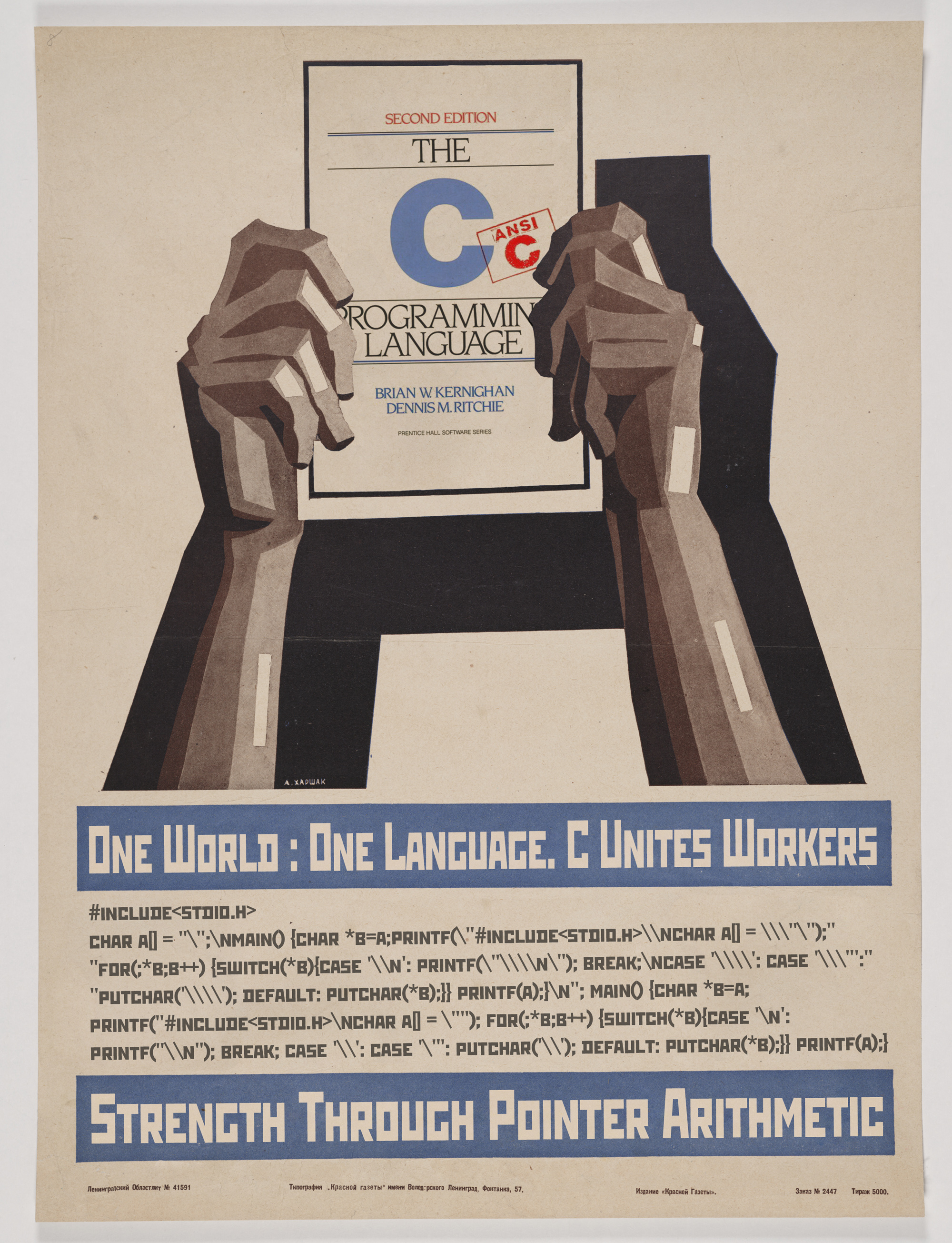hello friends! new(ish)!
C: Difference between revisions
Jump to navigation
Jump to search
>Eva-02 mNo edit summary |
>Thomas anderson |
||
| Line 33: | Line 33: | ||
int main(void) | int main(void) | ||
{ | { | ||
printf("hello, world\n"); | |||
} | } | ||
</pre> | </pre> | ||
[[Category:Programming languages]] | [[Category:Programming languages]] | ||
Revision as of 20:43, 9 February 2014
C is a programming language designed for application and systems programming. It was created by the late master himself, Dennis Ritchie, so that he could create Unix. C is standardized by ISO and is currently at the C11 standard.
Qualities
C is a very simple language, whose parts can combine to form very complex code structures.
Language
C is an imperative, procedural, structured language. This means:
- Code is a sequence of statements that change program state
- Statements may be organized in control structures like
if,while,for - Code may be organized as functions, which may be called from elsewhere
Type system
C is statically but weakly typed. This means:
- Types must be declared
- Values can be loosely converted between types regardless of compatibility
Examples
The examples provided here can be compiled and run using a C compiler such as gcc or clang.
Hello World!
#include <stdio.h>
int main(void)
{
printf("hello, world\n");
}
